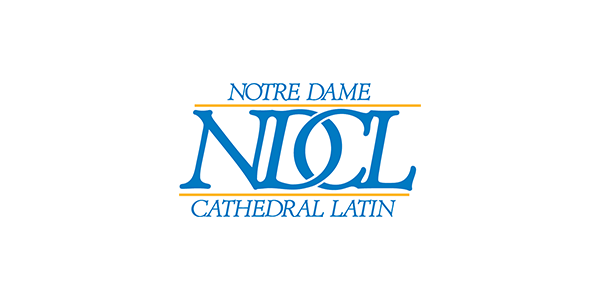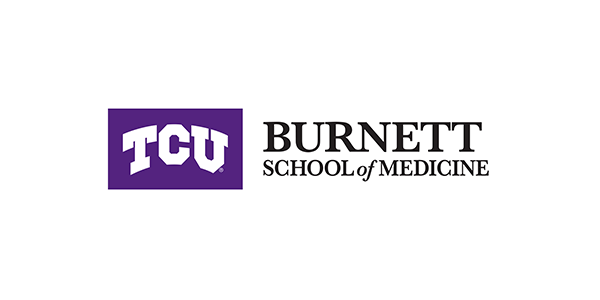The Future of Education Is Here.
AlensiaXR is revolutionizing the way students learn about the human body with the HoloAnatomy® learning platform. Our commitment to pedagogical excellence is enhanced by the invaluable guidance and expertise of our esteemed Academic Partner Advisory Board. Together, we’re shaping the future of medical education, replacing traditional cadavers with cutting-edge holographic technology. The result is a more accessible, immersive learning experience for students and educators alike.
Anna Campbell, Ph.D.
Charlotte Russell, Ph.D.
Christine Parker
Jason E Wells, Ph.D.
Jill S. Kawalec, Ph.D.
John H. Olson, Ph.D.
Leslie D. Catron, M.A. Ed, RN
Stuart D. Flynn, M.D.
-
Dr. Anna Campbell is an accomplished educator and researcher in medical education and anatomy. She currently serves as the Associate Professor and Chair of the Anatomy Department at A.T. Still University School of Osteopathic Medicine in Arizona. With a background that includes a BS in Biological Sciences from the University of Alaska Fairbanks and a PhD in Anatomy from Penn State University's College of Medicine, Dr. Campbell brings a wealth of expertise to her role.
Dr. Campbell's teaching passion lies in Gross Anatomy and Embryology for osteopathic medical students. She has experience integrating anatomy with other disciplines, providing a holistic perspective to medical education. Her commitment to fostering students' learning is underscored by her dynamic teaching methods and innovative approaches.
In the realm of research, Dr. Campbell's interests are centered around Medical Education. Her focus includes investigating students' utilization of learning resources and examining factors that influence academic performance. Her recent contributions have been published in esteemed journals such as Advances in Medical Education and Practice, Journal of American Osteopathic Association, and Medical Science Educator.
Dr. Campbell’s commitment to teaching and research positions her as a valuable contributor to the advancement of medical education. Her diverse insights and publications highlight her influential presence in the evolving field of medical pedagogy.
-
Dr. Charlotte Russell is a Teaching Professor who joined the Faculty of Simmons University in 2006 and was promoted to the Professor rank in 2022. She received her Bachelor of Medical Science from the University of Birmingham in England with honors in Cellular and Molecular Pathology in 1999, and her Ph.D. in Molecular Medicine from the University of Manchester (England) in 2002. She completed her post-doctoral Research Fellowship at Kings College London in the Department of Cardiovascular Biology before immigrating to the US in 2005.
Dr. Russell teaches Anatomy and Physiology to those entering the undergraduate Nursing Program, and those preparing for entry in a graduate program in the medical field. She also uses her expert knowledge of reproductive biology and endocrinology in the “Sex, Gender, and Biology” course for non-majors. Dr. Russell also oversees the senior capstone courses in the Biology Department, especially the “Thesis” course.
As a scholar, Dr. Russell has written a textbook of clinical case studies, “101 Case Studies for Anatomy and Physiology,” published by Kendall Hunt. The book is currently in its second edition.
Dr. Russell has been a long-time advocate for the use of alternative teaching methods in Anatomy and Physiology, and the opportunity to work with mixed reality has been a rewarding experience; its incorporation into the undergraduate and graduate curriculum has provided great benefits to students.
-
Christine Parker is an Associate Professor in the Department of Science & Technology at Finger Lakes Community College in Canandaigua, NY. She has more than 13 years of experience in classroom instruction and other academic roles, including institutional governance, curriculum design, and assessment.
Christine seeks to engage and motivate students to actively participate in all aspects of the educational process. She is skilled in applying various learning strategies and tools to improve the student experience. She shows strong dedication to innovation, and since 2018 has been using HoloAnatomy® Software to teach fundamental concepts in Anatomy and Physiology. She believes in continuous improvement and strives to advance innovative pedagogical approaches.
-
Jason E. Wells, Ph.D., is the Associate Dean for Biomedical Affairs at the Duquesne University College of Osteopathic Medicine. Before joining Duquesne, he held multiple leadership positions at the Liberty University College of Osteopathic Medicine (LUCOM) from 2013–2021. While at LUCOM, he also served as vice-chair of Anatomical Sciences, where he spent a year helping shape the curriculum and culture before the college welcomed its first class in 2014. He was then appointed as pre-clerkship curriculum director in 2015.
Dr. Wells has worked in medical education for more than 18 years, holding faculty and leadership positions at Rocky Vista University College of Osteopathic Medicine, West Virginia School of Osteopathic Medicine, and Southern Illinois University School of Dental Medicine. He has received numerous awards and recognitions, including five-time Educator of the Year, four-time Biomedical Educator of the Year, two-time William Osler Award for Excellence in Teaching, and the Atlas Golden Key Award for Biomedical Faculty.
Dr. Wells's neurophysiology research focused on the ionic currents involved in the conduction and transduction of pain in primary sensory neurons. He has published numerous articles in multiple journals. A southwestern Pennsylvania native, Dr. Wells earned his doctoral degree in the Program of Neuroscience from the West Virginia University School of Medicine, and his Bachelor of Science degree in Neuroscience from Allegheny College. He is a Costin Scholar and is pursuing an additional doctoral degree in Organizational Leadership.
-
Jill Kawalec, Ph.D., is Professor and Division Head of Preclinical Sciences at the Kent State University College of Podiatric Medicine (KSUCPM), where she is also the Director of Research. Jill earned her BS in bioengineering from the University of Pennsylvania in Philadelphia and her M.S. and Ph.D. in biomedical engineering with a specialization in orthopaedic biomaterials from Case Western Reserve University in Cleveland.
Jill joined KSUCPM (originally the Ohio College of Podiatric Medicine) in 1996 as an Assistant Professor and Director of Research. She coordinates and teaches the Principles of Medical Research course, coordinates the Preclinical Sciences Competency course, and delivers a lecture on Principles of Biomaterials for the Introduction to Podiatric Surgery course. She is passionate about innovating in her classroom and serves as the college’s ambassador for the scholarship of teaching and learning (SoTL).
-
John H. Olson, Ph.D., attended MIT where he earned a biological science degree. After receiving his master’s degree, he worked in developing monoclonal antibody diagnostic tools at Applied BioTechnology in Cambridge. He also worked at Advanced Magnetics in Cambridge, designing the first conjugated paramagnetic materials used for clinical use.
Dr. Olson later attended Arizona State University for his Ph.D. in Molecular/Cell Biology, where he discovered the first vertebrate sperm chemoattractant, alurin. He joined the faculty at Arizona State where he taught anatomy and physiology and did research on a range of subjects—from machine-assisted diagnosis of histological samples to trans-placental movement of drugs in pregnant mothers. When Arizona State University opened its downtown campus, he was responsible for setting up the labs and programs for pre-med and nursing anatomy and physiology.
Dr. Olson was invited to be an adjunct faculty member at ATSU-SOMA a few years later, and eventually transitioned to a full-time position, teaching anatomy and physiology.
-
As the Director of the California Health Sciences University Simulation Center, Leslie Catron helped build and establish this new, highly functional center with a new standardized patient program, augmented reality, and manikin simulation. As the fourth employee, she worked with faculty to integrate simulation into the curriculum, provide simulation training, and develop simulation assessments.
Starting as a neonatal nurse 49 years ago, Leslie advanced to clinical educator and clinical education specialist. She was nominated for the 2014 RN of the Year in Education for the Central San Joaquin Valley. She was also a Fellow of the Academy of Health Care Education Professionals from 2008–2017.
With 15 years of simulation experience, Leslie started as faculty and simulation coordinator in a community college nursing program, was recruited back to Valley Children's Hospital as the Clinical Education Specialist Simulation Coordinator, and is now the director of a robust medical school simulation program—the first of its kind in Central California. She has developed and implemented sustainable interprofessional simulation programs and trained healthcare students, physicians, nurses, paramedics, and technicians, developing an immersive simulation training program.
Leslie has written business and strategic plans for the university, including community outreach to high school students and regional healthcare organizations for sustainability. Each year she leads the simulation team in resident, medical student, pre-med students, and faculty training using simulation, and she serves as a consultant to other developing simulation programs.
Leslie has co-authored 42 original patient scenarios, served on local and national simulation committees, and co-founded the Central Valley Simulation Collaborative in 2009. She has been awarded multiple regional and national podium and poster presentations since 2012 and has given many workshops on simulation.
-
Stuart D. Flynn, M.D., is the founding dean of Fort Worth’s new M.D. school, the Burnett School of Medicine at TCU. The school recently graduated its first class and received full accreditation from the LCME.
Most recently, Dr. Flynn served as the founding dean of the University of Arizona College of Medicine – Phoenix. Previously, he was a professor of pathology and surgery at Yale University School of Medicine, as well as an accomplished researcher, director of the residency program, leader in the design and oversight of the school’s curriculum, and inaugural inductee into The Society of Distinguished Teachers at Yale.
Dr. Flynn received his medical degree and residency training from The University of Michigan and completed a fellowship in oncologic pathology, then joined the faculty at Stanford University. He has authored more than 100 articles, books, and monographs, and has received numerous honors including America’s Top Physician’s Award from the Consumers’ Research Council of America, the Bohmfalk Teacher of the Year Award from Yale University School of Medicine, and the Averill A. Liebow Award for excellence in the teaching of residents, also at Yale. He has been a member of the National Board of Medical Examiners Test Committee and USMLE Step I Test Material Development Committee.
A rapidly expanding network of institutions is using HoloAnatomy Software to provide a more engaging, effective learning experience.





























